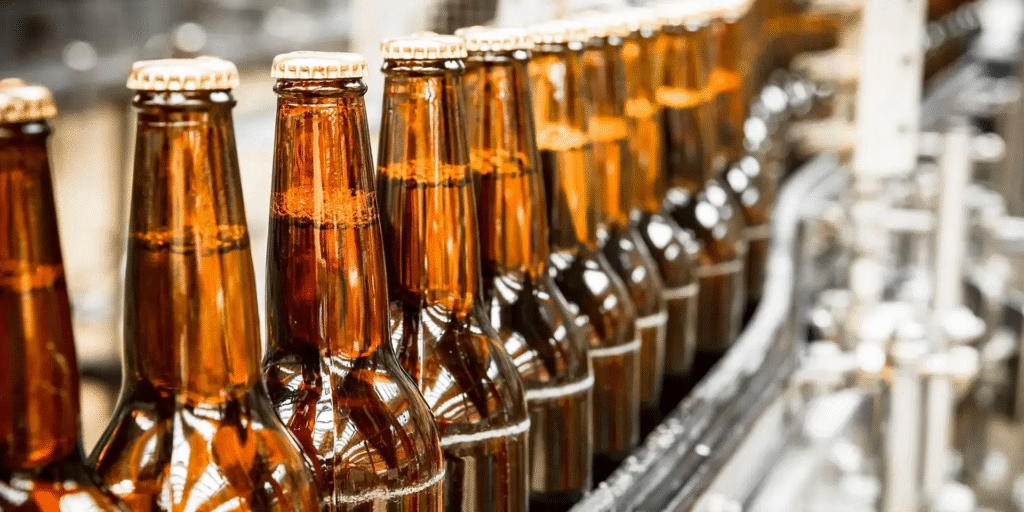CALCULATION EXAMPLES
Pasteurisation (279 kW): 10,000 litres/hour x 60 °C = 600,000 kcal/h. 40% of the heat must be supplied (240,000 kcal/h or 279 kW).
Fermentation (697 kW): Several tanks of 200,000 litres at 33 °C, losing 3 °C/hour. 200,000 litres x 3 °C = 600,000 kcal/h or 697 kW.
Bottle washing (104 kW): 10 tanks with 2.5 litres/minute each at 80 °C. 1,500 litres/hour x 60 °C = 90,000 kcal/h or 104 kW.
Fermentation tank cleaning (26 kW): 3 tanks with 25 litres/minute for 20 minutes. A 1,500-litre tank is recommended, heated from 20 to 80 °C. 22,500 kcal/h or 26 kW.
FOR THESE THERMAL PROCESSES, THERE ARE TWO ALTERNATIVES
Separate equipment: Distinct equipment with specific power ratings for each process.
Single unit: for pasteurisation, fermentation, and bottle washing processes with a total power of 1,080 kW.
When installing a single heat generation unit, it is necessary to add 10% for network losses. The equipment may be either steam generators or closed-loop superheated water systems, both operating at 3 bar and 137 °C. Superheated water systems are more economical and have lower maintenance costs.
CONCLUSION
In summary, modernising the thermal processes in the factory will contribute to environmental sustainability, save energy, and reduce operational costs.
This case study highlights the importance of modernising thermal processes in industrial facilities, not only to improve energy efficiency but also to achieve long-term environmental and sustainability goals.

